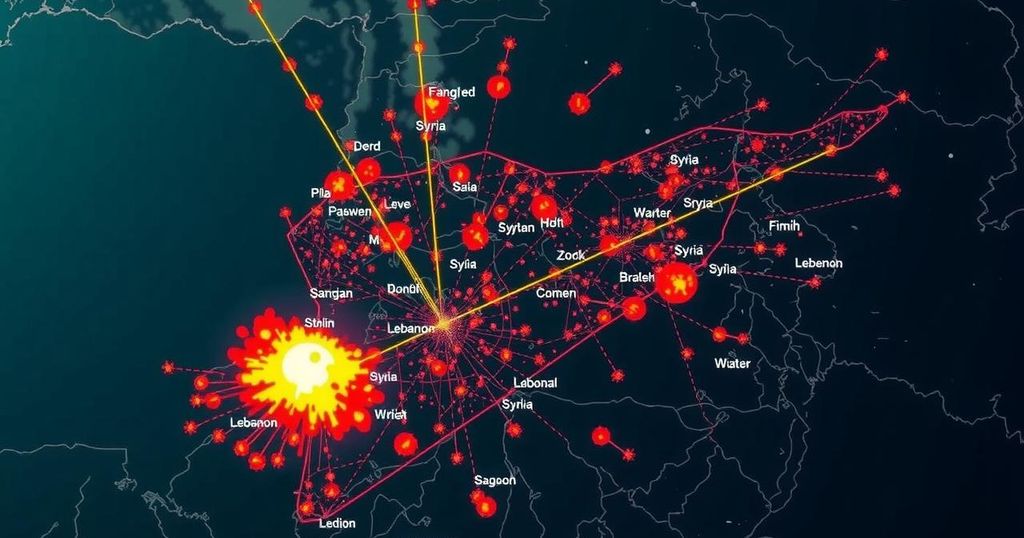Israel launched airstrikes in Damascus targeting Palestinian Islamic Jihad, resulting in casualties. The strikes aimed to neutralize militia operations and prevent weapon transfers to Hezbollah, amid a broader military campaign in southern Lebanon.
On Thursday, Israeli airstrikes targeted sites in Damascus, Syria, purportedly linked to the Palestinian Islamic Jihad, resulting in at least 15 fatalities and 16 injuries, including women and children, according to Syrian state media reports. The strikes were concentrated in the al-Mezzeh neighborhood and caused substantial damage to several structures. The Israeli military asserted that the operations inflicted significant damage on a command center of Palestinian Islamic Jihad, which is supported by Iran. Furthermore, Israeli officials expressed their intent to continue military operations in Syria and Lebanon to thwart weapon transfers to Hezbollah. In addition to the strikes in Syria, Israel maintained its assault on Hezbollah targets in southern Lebanon, where, over the past week, it claimed to have killed numerous Hezbollah fighters and dismantled over 140 rocket launchers. Historically, Israeli forces have conducted operations against Iranian-linked militia in Syria to disrupt their activities from there. While Israel tends to remain silent on individual operations, there has been a notable shift, with officials accepting accountability for recent strikes.
The ongoing conflict in the Middle East, particularly involving Israel, Syria, and Lebanon, has led to frequent confrontations between Israeli forces and Iranian-backed militia groups. Israeli policy is deeply rooted in the desire to neutralize threats from groups such as Hezbollah and Palestinian Islamic Jihad, which operate close to its borders. The Israeli government perceives these groups as significant threats due to their military capabilities and the support they receive from Iran, prompting consistent military actions in both Syria and Lebanon. The recent escalation in airstrikes reflects Israel’s strategic approach to deter these militia from further reinforcing their positions and capabilities.
In summary, the recent airstrikes conducted by Israel in Syria and Lebanon represent a continuation of its long-standing strategy to target Iranian-backed militia, aiming to prevent further threats to its national security. This pattern of military engagement reflects the complexities of regional geopolitics and the ongoing tensions between Israel and its adversaries in the region.
Original Source: www.nytimes.com







